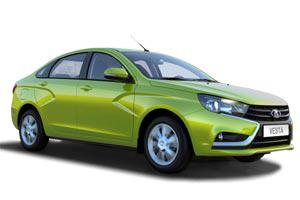Thu, 09 Jan 2025
Compare Opel Astra Family 1.6 Hatchback and Hyundai i30 (2017-2020) 1.0 T-GDI
Technical specifications
| Clear list | Opel Astra Family | Hyundai i30 (2017-2020) |
| Totals | Opel Astra Family 1.6 Hatchback × | Hyundai i30 (2017-2020) 1.0 T-GDI × |
| Mark | Opel | Hyundai |
| Model | Astra Family 1.6 Hatchback | i30 (2017-2020) 1.0 T-GDI |
| Year | 2005 | 2017-2020 |
| Number of doors/seats | (3-5)/5 | 5/5 |
| Body type | Hatch | Hatch |
| Unladen Weight | 1190 | 1342 |
| Gross Weight Limit | 1740 | 1800 |
| Top Speed, km/h | 185 | 190 |
| Acceleration 0-100 kph | 12.3 | 11.1 |
| Minimum turning radius, m | 5.4 | 5.3 |
| Cargo Volume, min/max, L | 350/1270 | 395/1301 |
| Dimensions specifications, mm | Opel Astra Family 1.6 Hatchback × | Hyundai i30 (2017-2020) 1.0 T-GDI × |
| Length | 4250 | 4340 |
| Width | 1755 | 1795 |
| Height | 1460 | 1455 |
| Wheelbase | 2615 | 2650 |
| Front/rear Track | 1490/1490 | - |
| Ground clearance | 130 | 140 |
| Engine specifications | Opel Astra Family 1.6 Hatchback × | Hyundai i30 (2017-2020) 1.0 T-GDI × |
| Type | petrol Injection | Gasoline Direct Injection, turbocharging |
| Displacement, cm3 | 1598 | 998 |
| Compression ratio | 10.5 | 10 |
| Number and arrangement of cylinders | 4 cylinders, in-line | 3 cylinders, in-line |
| The diameter of the cylinder x stroke, mm | 79х81.5 | 71x84 |
| Number of valves | 16 | 12 |
| Power, hp/rpm | 105/6000 | 120/6000 |
| Max torque, Nm/RPM | 150/3900 | 171/1500-4000 |
| Transmission specifications | Opel Astra Family 1.6 Hatchback × | Hyundai i30 (2017-2020) 1.0 T-GDI × |
| Gearbox | 5-speed manual | 6-speed manual |
| Drive Type | Front wheel drive | Front wheel drive |
| Suspension specifications | Opel Astra Family 1.6 Hatchback × | Hyundai i30 (2017-2020) 1.0 T-GDI × |
| Front | MacPherson strut | MacPherson strut |
| Rear | Dependent suspensions | multi-link suspensions |
| Tire Size | 195/65/15 | 195/65 R15, 205/55 R16 |
| Disk | 5x110 ET35 d65,1
| 5x114.3 ET47 d67.1
|
| Brakes specifications | Opel Astra Family 1.6 Hatchback × | Hyundai i30 (2017-2020) 1.0 T-GDI × |
| Front | Ventilated discs | Ventilated discs |
| Rear | Discs | Discs |
| Fuel consumption specifications, L/100 km | Opel Astra Family 1.6 Hatchback × | Hyundai i30 (2017-2020) 1.0 T-GDI × |
| City | 8.8 | 5.8 |
| Highway | 5.3 | 4.5 |
| Combined | 6.6 | 5 |
| Fuel | 95 | 95 |
| Tank, L | 52 | 50 |
| Clear list | Opel Astra Family | Hyundai i30 (2017-2020) |














